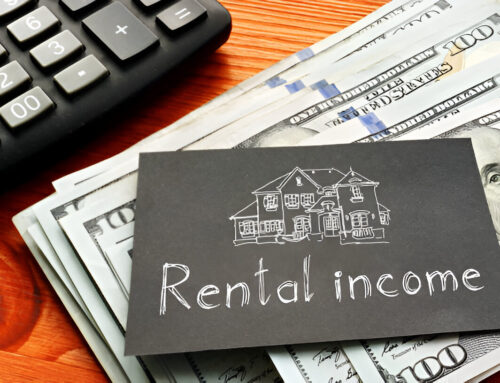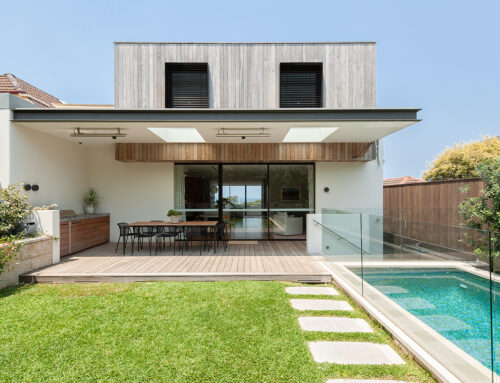
The Fair Trading Amendment Bill 2018 passed in August 2018 after being voted in by the Government with bipartisan Labor support. After a long time waiting, the new short-term rental accommodation (STRA) framework has been designed to improve outcomes for hosts and community groups alike. Current laws have been amended, and new provisions have been introduced as a way to increase transparency and improve management practices. Let’s take a look at the changes and see how they will affect you as a host.
Planning laws
In an effort to make things more transparent and realistic for hosts, new planning laws have been introduced to allow short-term letting under certain conditions. It is not necessary for a host to submit a development application if they are present while their home is being let on a short-term basis. These new planning laws allow short-term letting throughout the year as a form of exempt development. For example, if you rent out part of your home on a short-term basis as an owner-occupier, it will be considered exempt for 365 days a year throughout NSW.
If the host is not present, however, the exempt development period will last no more than 180 days in Greater Sydney and up to 365 days in other parts of NSW. Local Councils outside Greater Sydney will be able to limit the letting period to less than 365 days but no lower than 180 days, with Byron Shire Council and other busy tourist areas likely to introduce these restrictions. If you rent out your Sydney home on a short-term basis while living elsewhere, it may become necessary to find a long-term tenant for the remaining six months of the year.
If the land is prone to bushfire under the BAL29 rating, and the host is not present, short-term letting will be considered a form of complying development rather than exempt development. In this situation, short-term letting will be allowed for no more than 180 days in Greater Sydney and more than 365 days elsewhere in NSW. In addition, minimum fire safety and evacuation requirements will be introduced for short-term letting premises under the STRA framework. As a host, it’s important to check how these planning laws are adopted in your local area.
Strata scheme by-law provisions
Provisions have also been made to restrict holiday letting when it adversely affects the surrounding community. Strata scheme management laws are being changed to clarify existing by-laws which prohibit short-term holiday letting. These provisions will not affect everyone, however, and will only apply for properties where the host is not a resident. For example, owner-occupiers in Sydney and elsewhere will still be able to rent out part of their home on a short-term basis. It’s important to note that these rules will also apply if the host is away from their home, so you can still have a holiday of your own.
Under new changes to the Strata Schemes Management Act 2015, owners’ corporations will be able to pass by-laws which ban short-term letting in their block in cases where the host is not present. While they will require a 75 percent majority vote to implement such a ban, this provision does give a degree of power back to individual communities. The combination of exemptions and by-law provisions in the new framework is an attempt to create a win-win situation for everyone, including hosts, their neighbours, and the wider community.
Industry Code of Conduct
Among the most significant changes affecting hosts is a mandatory Code of Conduct which will also apply to guests, online platforms, and letting agents. While details still need to be announced about how the Code will be enforced, it will work with a complaints system and establish a ‘2 strikes and out’ policy. The Code of Conduct attempts to implement a range of assurances and protections, including provisions for neighbours regarding anti-social behaviour and guarantees for hosts and local communities who benefit from the short-term holiday rental market.
The ‘2 strikes’ policy will function as a protective mechanism for neighbours or anyone else who is adversely affected by a holiday letting operation. Hosts and guests will be given a single second chance over a five year period, with two serious breaches of the Code resulting in a five-year ban. Once someone has received two strikes, they will be placed on the exclusion register and not allowed to offer their services for the exclusion period. While enforcement details are still unclear, online platforms such as Airbnb and individual letting agents will not be allowed to offer their services to people or properties which have been placed on the register.
A complaints systems will be initiated to deal with potential problems, with a list made available to the neighbours of holiday letting premises along with strata committees and owners’ corporations. If you have a complaint made against you, it will be assessed by independent and impartial adjudicators approved by the Commissioner for Fair Trading. When a complaint has been made, both parties involved will be given a chance to make their case, with the final decision by the Adjudicator based on evidence and submissions.
In order for this system to work, online platforms and agents will be required to check the register before they accept new customers. Failure to do so may result in penalties of up to $1.1 million for corporations and $220,000 for individuals. While NSW Fair Trading has been given powers to police this system, the details are still unclear as to exactly how this will take place. The Department of Finance, Services and Innovation were responsible for developing the Code of Conduct. If you want more information about the Code, it is available from the Department of NSW Fair Trading.
Framework timelines
This framework has been a long time coming, with the NSW Parliament Legislative Assembly Committee on Environment and Planning making their initial recommendations back in 2016. An options paper was then released in mid-2017, with the new short-term holiday letting reforms finally passed on 14 August 2018. The new framework is expected to start sometime in 2019 after consultation with key government agencies, community bodies, and industry representatives. As a short-term holiday host, it’s important to be aware of these changes and how they will affect your business.
If you would like help in navigating the Short Term letting laws and need help hosting your property, call HomeHost on 1300 17 17 18.






